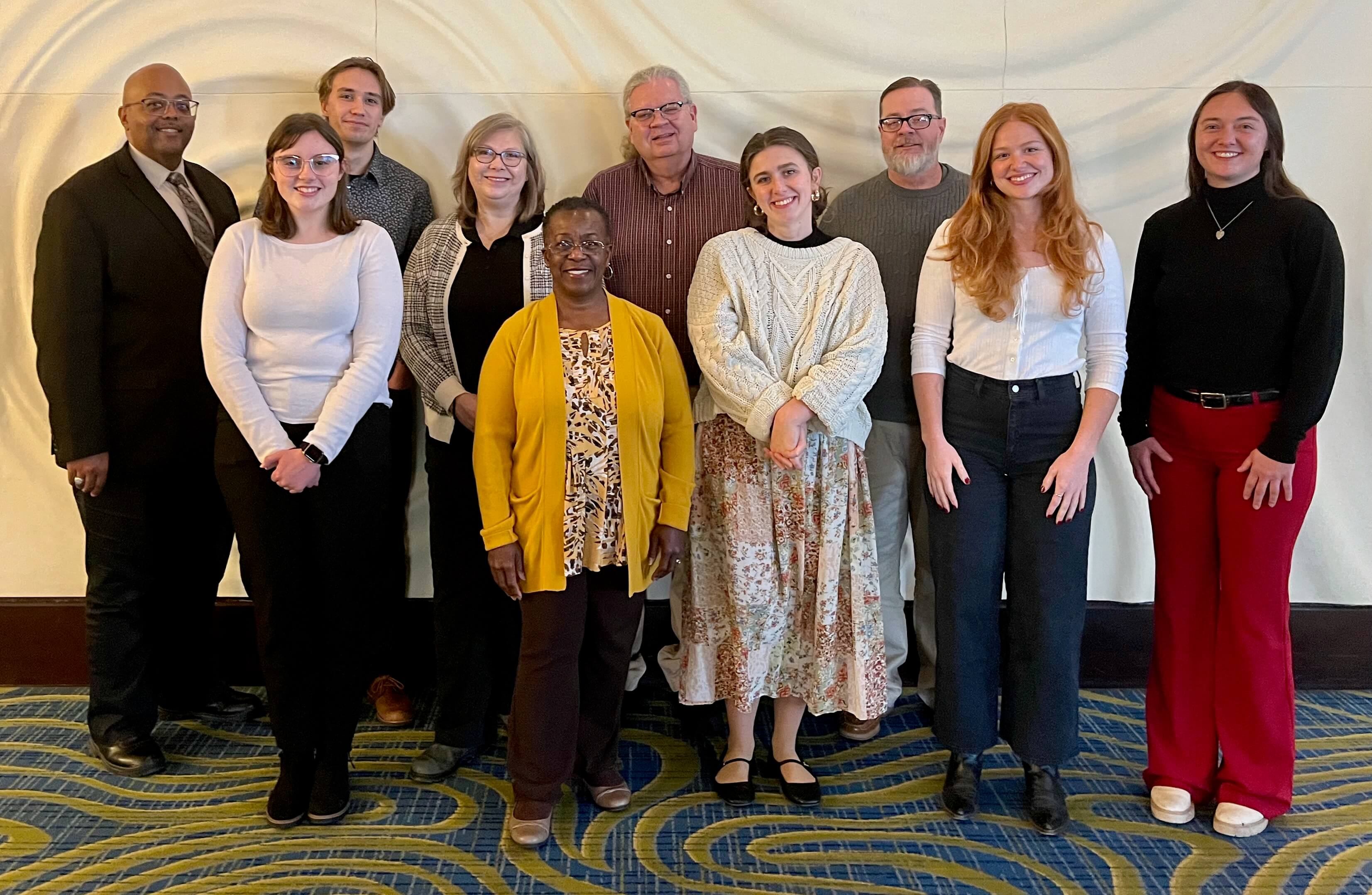Appalachian Regional Commission hosts
15 colleges and universities for 24th ACRI

ETSU students present community engagement initiative
A group of students from ETSU, on Dec. 7, 2024, presented a capstone research project
in Washington, D.C., from an ongoing community engagement initiative to examine intersections
between economic development and health disparities within an underserved and historically
Black neighborhood in Johnson City, Tennessee.
The group was among about 100 students from 15 colleges and universities in eight Appalachian states participating in the Appalachian Collegiate Research Initiative (ACRI) symposium. Sponsored by the Appalachian Regional Commission (ARC), the ACRI capstone symposium is administrated by the Center of Excellence for Appalachian Studies and Services at ETSU.
The findings presented by students from ETSU’s Department of Appalachian Studies are from the third year of a continuing research project conducted through an Appalachian Community Engagement graduate course taught by Dr. Rebecca Adkins Fletcher. Students involved in this year’s research include Grace Shoun, Codi Clark, Jeff Banks, Ophelia Thornton, Alan Holmes, Grace Jonas, and Tashi Litch.
“Graduate students and I have worked with the Langston Health Equity Task Force doing ethnographic interviews and assisting with two health fairs,” Fletcher said. “This year, we are conducting the Langston Community Health Survey to gain a better understanding of health concerns and health care barriers in this community. This will inform the Task Force’s next steps in addressing health inequities in this community.”
Accompanying the ETSU team at this year’s conference were Dr. Georgita Washington, executive committee member for the Langston Centre Health Equity Task Force, and Adam Dickson, supervisor of the Langston Centre.
“One of the things I gleaned from the proposals — whether its Cuba, New York, and working in the community from a planning perspective, or if it was Virginia Tech and working with the African American Community — you are helping to build the narrative of Appalachia. And that is very much important work,” Dickson said. “…The work that you’re doing really helps us build, construct and shape a very positive narrative for this region that we do love so dearly.”
Students participating in the ACRI capstone symposium learn to develop and execute field-based research projects that address the unique economic development needs of their communities and align with ARC’s investment priorities.
“By encouraging Appalachia’s college students to present their solutions to the region’s challenges, ACRI sets the groundwork for the next generation of Appalachian leadership and prosperity,” ARC Federal Co-Chair Gayle Manchin Said. “I applaud this year’s participants for their hard work, willingness to collaborate, and passion for helping improve the quality of life for their neighbors across Appalachia’s 13 states. I hope this inspires other forward-thinking students to follow their lead by participating in ACRI next year.”
Dr. Ron Roach, director of the Center of Excellence at ETSU, and principal investigator for the ACRI grant, said the program has connected thousands of college students with Appalachian communities and given them invaluable experience in community engagement and leadership. “We can’t wait to see what you all are going to do as you leave this program and go out into your careers and into your communities,” Roach told participants during his closing remarks at this year’s symposium. “I always leave this conference filled with renewed hope — hope for our region, hope for our country, hope for our world, because of what I see in all of you.”
ETSU’s students are among more than 3,000 college and graduate students from 34 colleges and universities across Appalachia who have participated in the ACRI capstone symposium since it was established in 2001 as the Appalachian Teaching Project. ETSU’s Center of Excellence has administered the ACRI grant throughout its 24 years of existence.
To learn more about the ETSU project and this year’s other ACRI research projects, visit arc.gov.
 South Dossett Drive - Closure...
South Dossett Drive - Closure...